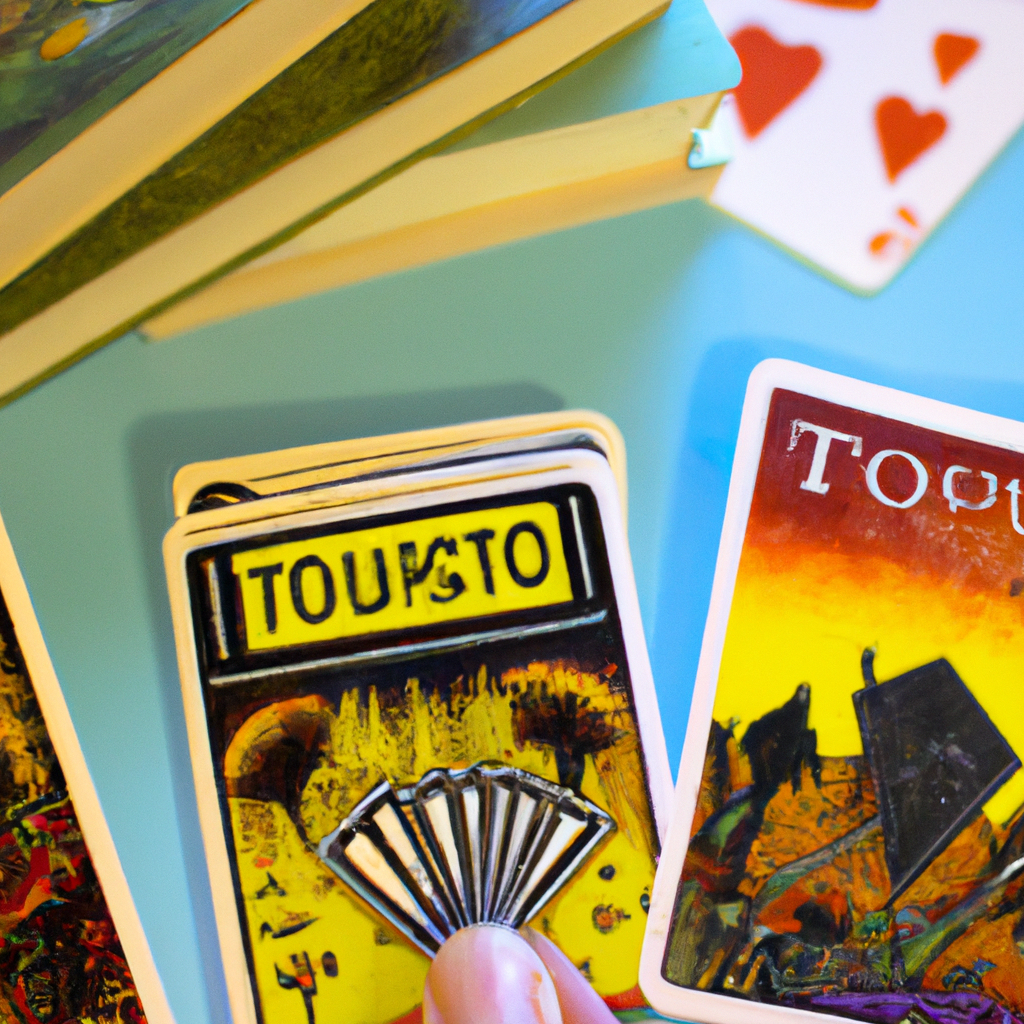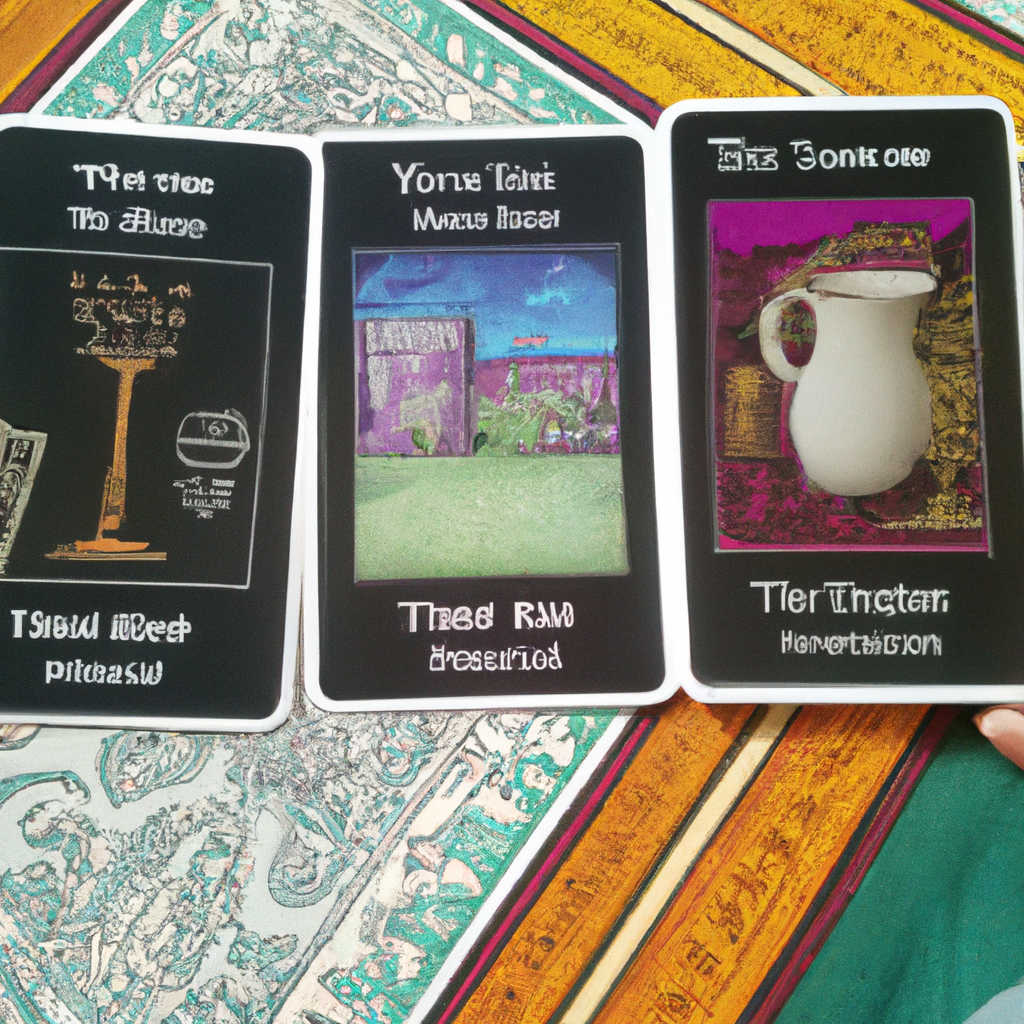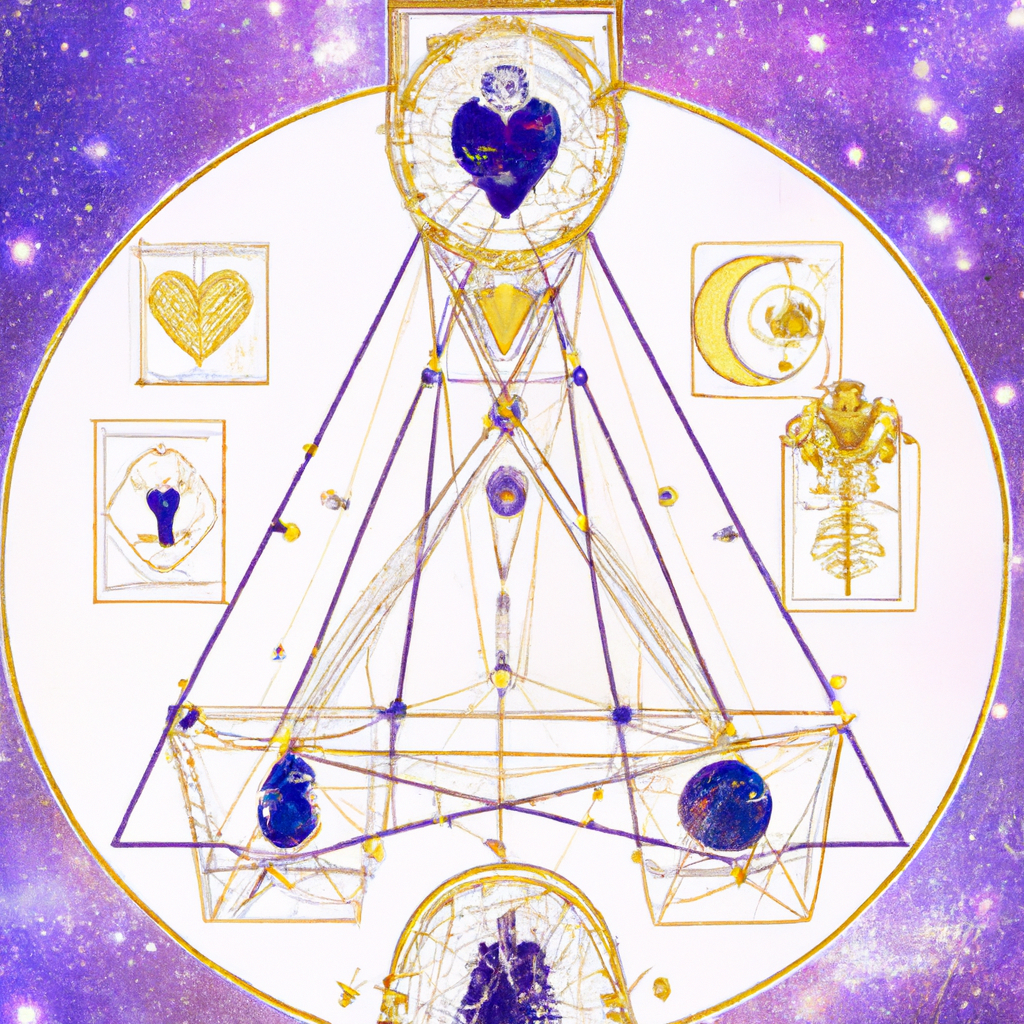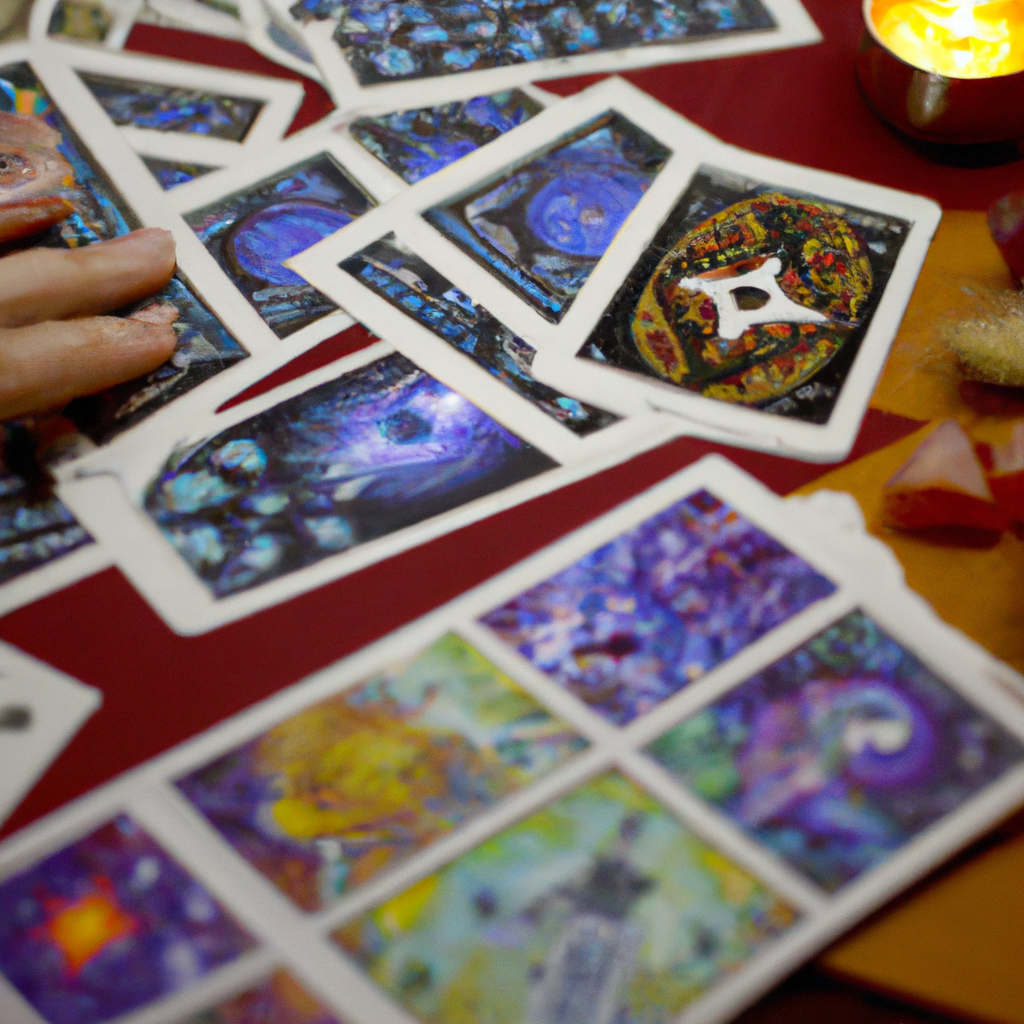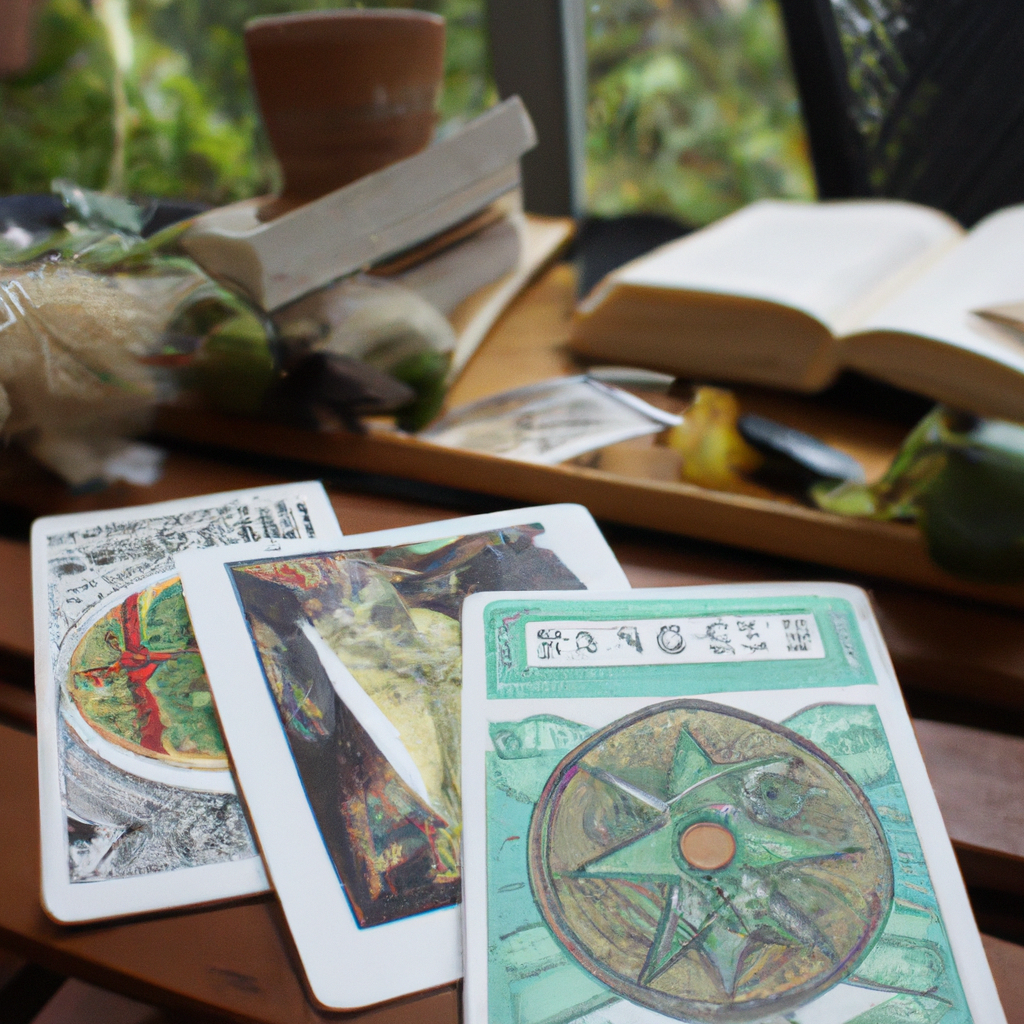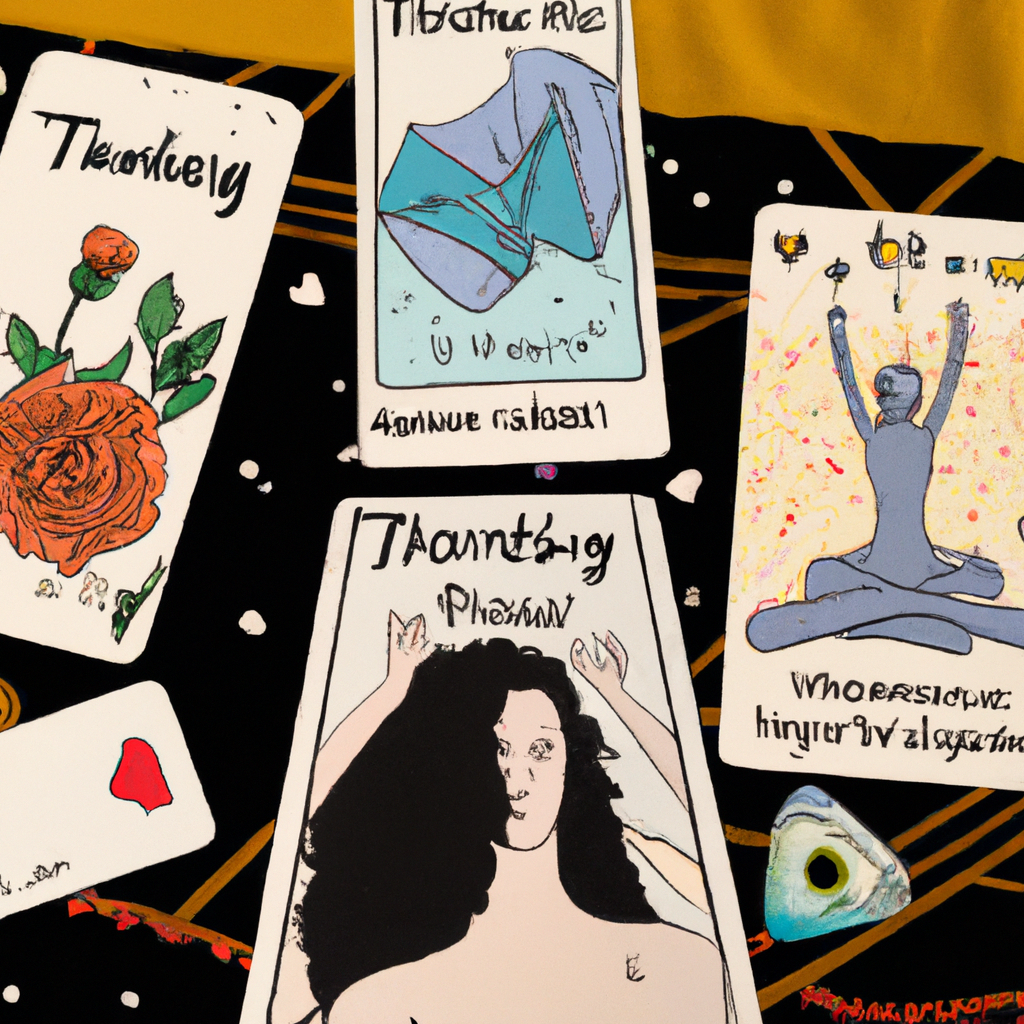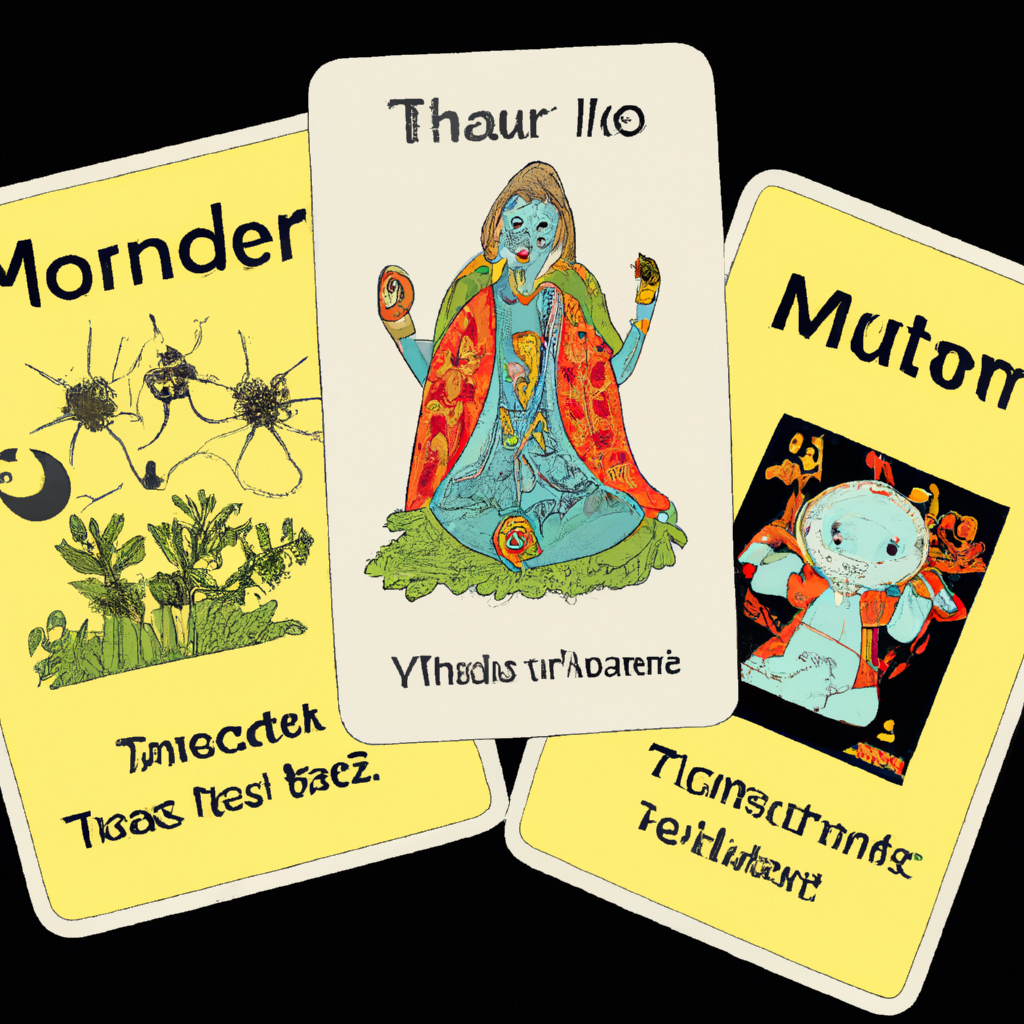Shopping Cart.
No products in the cart.
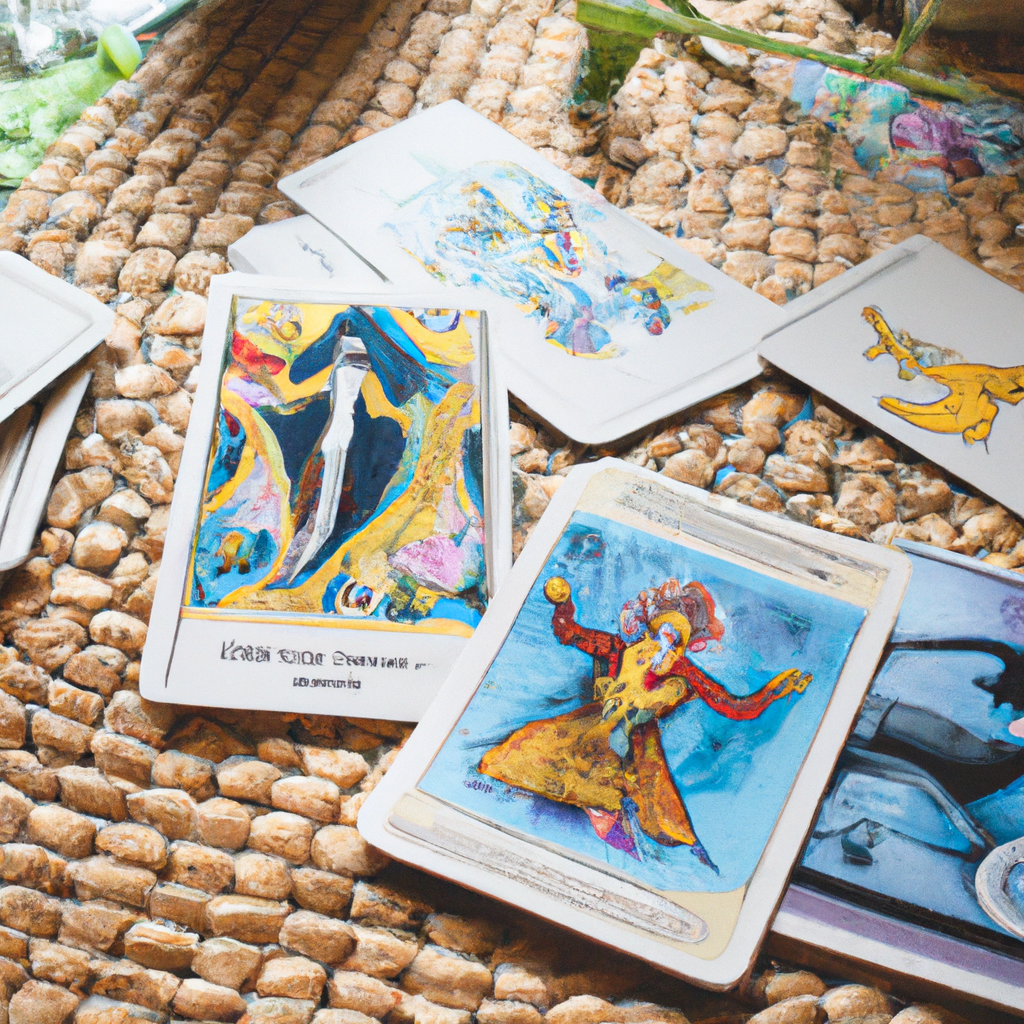
Tarot and Mental Health: Using Cards for Self-Care
Once upon a time, in a bustling city, a young woman named Lily found herself feeling lost and overwhelmed. She was juggling a demanding job, a complicated personal life, and a constant battle with anxiety. One day, she stumbled upon a quaint little shop tucked away in a quiet corner of the city. The shop was filled with crystals, incense, and, most intriguingly, tarot cards. Intrigued, Lily decided to explore the world of tarot, not knowing that it would become a powerful tool for her mental health self-care.
Tarot, a deck of 78 cards filled with rich symbolism and imagery, has been used for centuries for divination and self-reflection. However, it’s not just about predicting the future. Tarot can also be a powerful tool for introspection, self-awareness, and mental health self-care. It’s like having a personal therapist in your pocket, ready to provide insights and guidance whenever you need it.
Lily started using tarot as a form of meditation. Each morning, she would draw a card and reflect on its meaning. The cards served as a mirror, reflecting back her thoughts, feelings, and fears. They helped her to understand her emotions better and to confront her anxieties head-on. For instance, when she drew the Nine of Swords, a card often associated with anxiety and fear, she was forced to acknowledge her feelings of overwhelm and stress. This acknowledgment was the first step towards managing her anxiety.
Moreover, tarot also helped Lily to cultivate mindfulness. The process of shuffling the cards, choosing a card, and reflecting on its meaning forced her to slow down and be present in the moment. This mindfulness practice helped her to manage her anxiety and to feel more grounded and calm.
But tarot wasn’t just about confronting negative emotions. It also helped Lily to celebrate her strengths and achievements. When she drew cards like the Empress or the Six of Wands, she was reminded of her own power and potential. These cards served as a reminder that she was capable, strong, and deserving of success and happiness.
As Lily continued to use tarot for self-care, she noticed a significant improvement in her mental health. She felt more in tune with her emotions, more mindful, and more empowered. She also found that tarot was a great conversation starter. She started hosting tarot parties with her friends, where they would draw cards and discuss their meanings. These gatherings not only provided a fun and unique social activity but also opened up a space for deep and meaningful conversations about mental health.
In conclusion, tarot can be a powerful tool for mental health self-care. It provides a unique way to reflect on our emotions, cultivate mindfulness, and celebrate our strengths. It’s not about predicting the future, but about understanding ourselves better and taking care of our mental health. Just like Lily, we can all harness the power of tarot for self-care. So why not give it a try? You might be surprised by the insights and guidance you’ll find in these 78 cards.
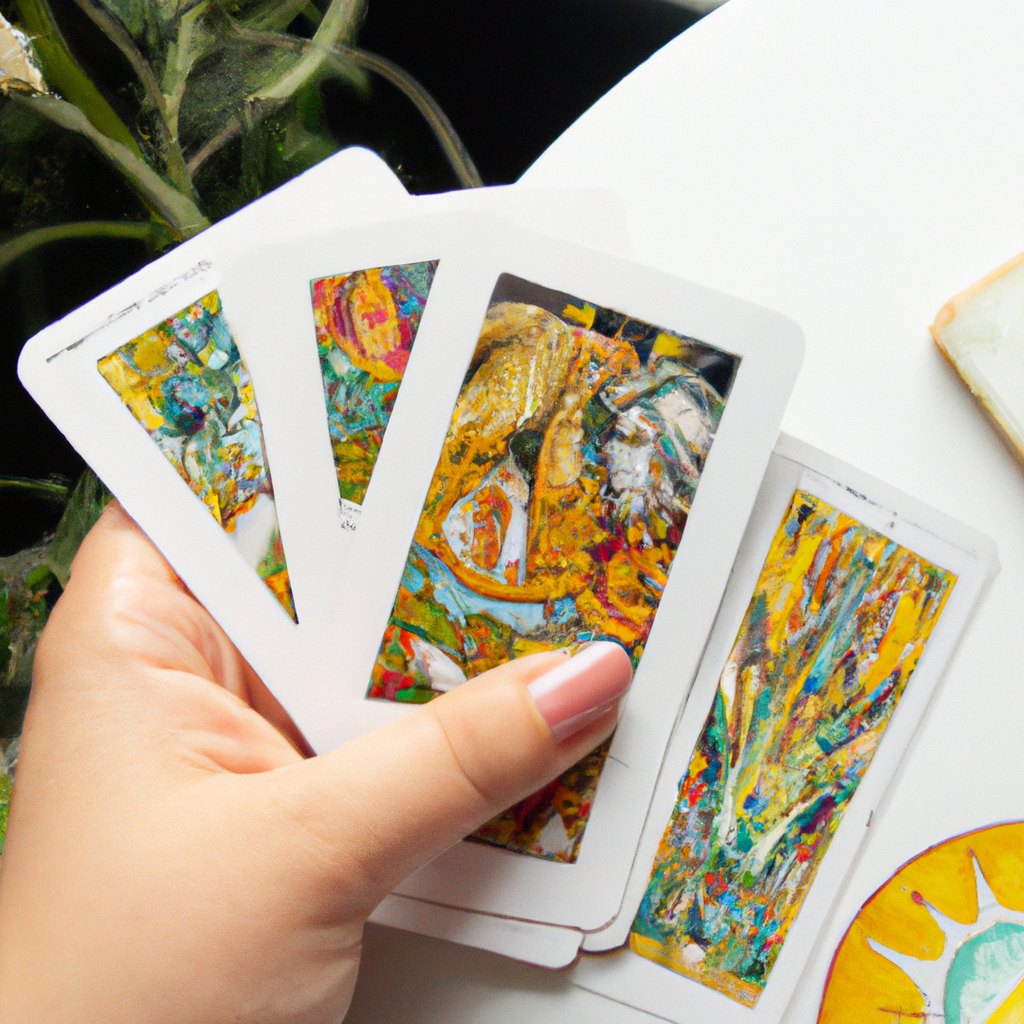
Tarot and mental health may seem like an unlikely pair at first glance. However, as someone who has been reading tarot cards for years, I can attest to the profound impact they can have on one’s mental well-being. The intersection of tarot and mental health is a fascinating realm to explore, and it’s one that offers a unique approach to self-care.
Let me start by saying that tarot is not about predicting the future. Instead, it’s a tool for introspection, self-discovery, and personal growth. Each card in the tarot deck represents different aspects of human experience, and when we draw a card, it’s like holding up a mirror to our inner selves. It’s a way to tap into our subconscious mind and bring to light the thoughts, feelings, and beliefs that often go unnoticed.
Now, you might be wondering, how does this relate to mental health? Well, mental health is all about understanding and managing our thoughts and emotions. It’s about recognizing our patterns, confronting our fears, and cultivating a positive mindset. And this is precisely where tarot comes in. By prompting us to reflect on our inner world, tarot cards can help us gain insights into our mental and emotional state.
For instance, if you draw the Ten of Swords, it doesn’t mean you’re doomed to suffer. Instead, it might be a sign that you’re feeling overwhelmed or defeated, and it’s time to let go of what’s not serving you. On the other hand, if you draw the Star, it could be a reminder to have faith in yourself and stay hopeful, even in challenging times. In this way, tarot cards can serve as a guide, helping us navigate our mental landscape and make sense of our experiences.
Moreover, the act of reading tarot cards can be a form of mindfulness practice. As you shuffle the deck, draw a card, and contemplate its meaning, you’re fully engaged in the present moment. You’re not worrying about the past or the future; you’re simply here and now, connecting with yourself on a deeper level. This can be incredibly calming and therapeutic, especially in today’s fast-paced, stress-filled world.
But perhaps the most beautiful thing about using tarot for self-care is that it empowers us to take charge of our mental health. It encourages us to be proactive, to seek understanding, and to make conscious choices that support our well-being. It reminds us that we’re not passive victims of circumstance, but active participants in our own healing journey.
Of course, tarot is not a substitute for professional mental health care. If you’re struggling with serious mental health issues, it’s crucial to seek help from a qualified professional. But as a complementary tool, tarot can be a wonderful addition to your self-care routine.
So, whether you’re a seasoned tarot reader or a curious beginner, I invite you to explore the intersection of tarot and mental health. Pick up a deck, draw a card, and see what insights it brings. You might be surprised by how much you can learn about yourself, and how much peace and clarity you can find in the process. After all, self-care is not just about bubble baths and spa days; it’s about nurturing your mind, your heart, and your soul. And in my experience, tarot is a beautiful way to do just that.
Tarot and Mental Health: Using Cards for Self-Care
Once upon a time, in a bustling city, a young woman named Lily found herself feeling lost and overwhelmed. She was juggling a demanding job, a complicated personal life, and a constant battle with anxiety. One day, while wandering through a local market, she stumbled upon a small, quaint shop filled with crystals, incense, and tarot cards. Intrigued, she decided to explore this unfamiliar world of mysticism and spirituality.
Lily had always been skeptical about tarot cards, viewing them as a mere party trick or a tool for fortune-telling. However, the shopkeeper, an elderly woman with a warm smile, introduced her to a different perspective. She explained that tarot cards could be used as a tool for introspection and self-care, a concept that piqued Lily’s interest.
The shopkeeper told Lily that each tarot card represents different aspects of life, emotions, experiences, and situations. By drawing and reflecting on these cards, one can gain insights into their subconscious mind, helping them understand their feelings and thoughts better. This process, she explained, could be therapeutic and beneficial for mental health.
Intrigued by this new perspective, Lily decided to give it a try. She bought a deck of tarot cards and started using them as part of her daily routine. Every morning, she would draw a card and spend a few minutes reflecting on its meaning and how it related to her life. This practice became a form of meditation for her, a quiet moment of introspection before the chaos of the day.
As days turned into weeks, Lily noticed a significant change in her mental state. The practice of drawing and reflecting on the tarot cards helped her become more mindful of her emotions and thoughts. She found herself better equipped to handle her anxiety and stress, as she could now identify and understand her feelings better.
Moreover, the tarot cards also served as a reminder for self-care. Each card’s interpretation often highlighted the importance of balance, self-love, and taking time for oneself. This constant reminder encouraged Lily to prioritize her mental health and well-being, something she had often neglected in her busy life.
Lily’s story is a testament to the potential benefits of using tarot cards for mental health and self-care. It’s important to note that tarot cards are not a replacement for professional mental health services. However, they can be a valuable tool in one’s self-care toolkit, providing a unique way to connect with oneself and promote mental well-being.
In the end, tarot cards are not about predicting the future or revealing hidden secrets. They are about introspection, understanding, and self-care. They are a mirror reflecting our inner world, helping us navigate through our emotions and thoughts. So, whether you’re feeling lost like Lily or just looking for a new self-care practice, consider giving tarot cards a try. You might be surprised by the insights and peace they can bring to your life.
In conclusion, Tarot can be a beneficial tool for mental health and self-care. It provides a unique method for introspection, self-exploration, and mindfulness, promoting a deeper understanding of one’s thoughts, feelings, and experiences. However, it should not replace professional mental health services but can be used as a supplementary tool for personal growth and self-awareness.
